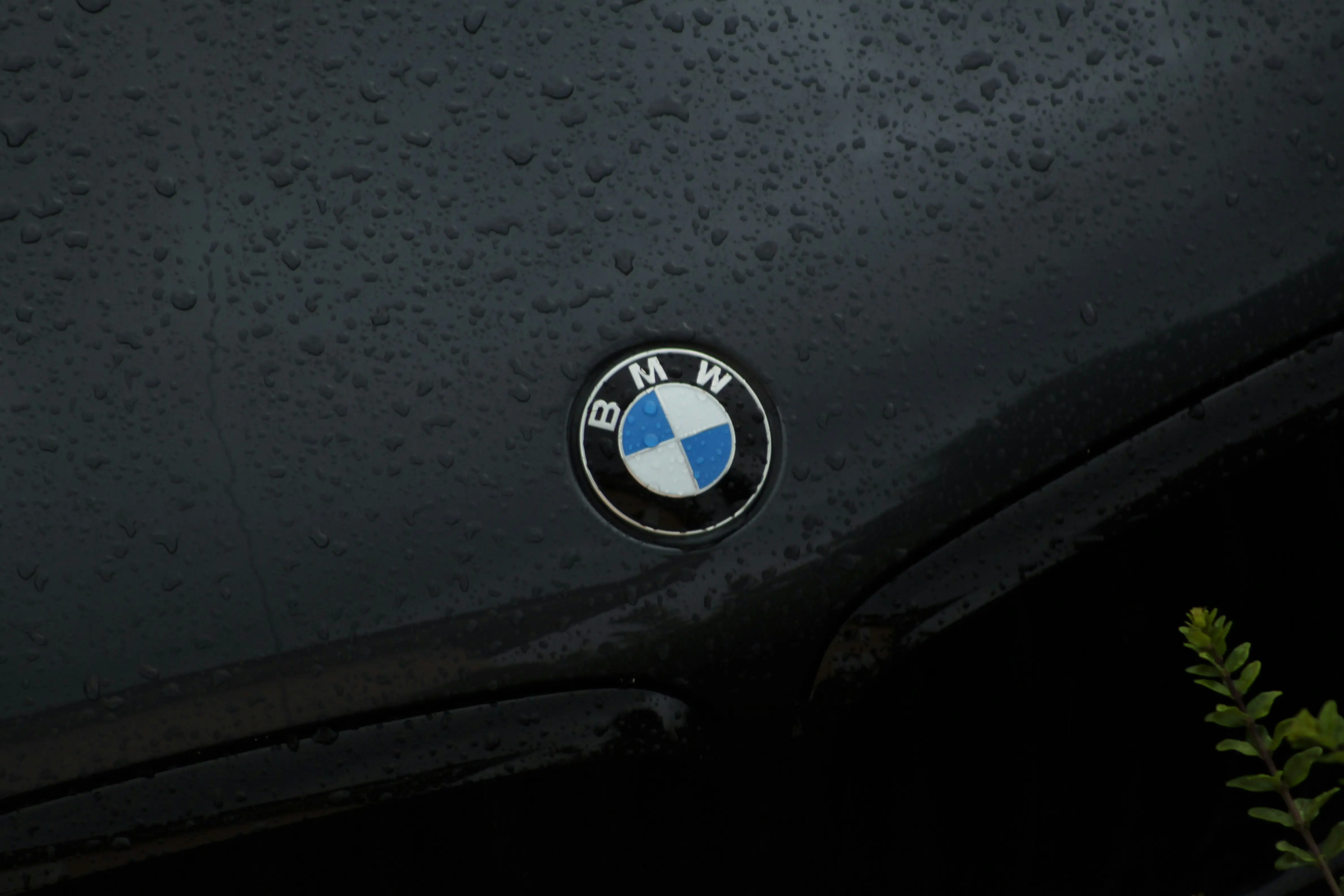On average, a new BMW will lose approximately 23.75% of its original value in the first year of ownership. Five-year depreciation rates for the most popular BMW models average over 50%—well above the average for new vehicles.
All vehicles lose value over time—but some lose it faster than others. If you’re in the market for a used BMW—or hoping to sell your own—knowing about each model’s depreciation rate can help you get the best deal possible. It’s also helpful for keeping track of loan payments and interest, and it can be a good indicator of overall vehicle reliability. But depreciation is one of the hidden costs of car ownership: car buyers don’t usually factor it into their budget on top of the sticker price.
Do BMWs hold their value?
BMWs are beloved for their driving dynamics—but not their steep depreciation rates. According to U.S. News and World Report, the BMW 7 Series sedan has the highest new car depreciation rate, losing up to 72.6% of its value in just five years.
Other fast-depreciating BMW models include the i3 electric hatchback, which depreciates by an estimated 70.9% in five years according to Forbes, and the 5 Series sedan, which can lose around 69% of its value by the five-year mark.
On the other hand, not all BMWs depreciate so rapidly. Take the 2 Series coupe and the X1 crossover, which lose just 47% and 48% of their value, respectively, in the first five years. That’s still above the expected rate for the average vehicle, but it’s not bad for luxury cars.
What does “depreciation” mean?
You’ve probably heard someone say that your car loses value the minute you drive it away from the dealership. Depreciation represents the difference between what you paid for your car and the value it has left. It can be calculated based on:
- Purchase price
- Mileage
- Ownership history
- Condition
The average five-year depreciation rate for new vehicles is approximately 40%, with close to 20% of that value lost in the first year alone. But there aren’t any hard and fast rules for calculating depreciation, which is why you’ll see slightly different estimates—even for the same model. If your car is in an accident, if you don’t keep up with regular maintenance, or if you simply use it a lot, it will depreciate faster. A car with a high reputation—like, say, a Bimmer—will also lose value more quickly than a car that had less cachet to begin with.
Depreciation is one of the most overlooked parts of the true cost of car ownership. Along with insurance, maintenance costs, and repair costs, depreciation makes up a big percentage of the price of car ownership. It’s also important to keep an eye on if you’re in the market for a used car.
Do BMWs depreciate faster than other luxury vehicles?
Unfortunately, yes. While luxury sedans, SUVs, and sports cars tend to depreciate faster, on average, than your average Honda or Toyota, BMW is particularly notorious for its cars’ fast-dropping resale values.
However, some other high-end cars have depreciation rates close to BMW’s. The Audi A6 and Mercedes-Benz E-Class, for instance, both lose about 69% of their value in five years. It’s not just luxury cars, either: the famously affordable Nissan Leaf electric car has an average depreciation rate of just over 70% in five years.
At the other end of the spectrum, you’ll find the lowest depreciation rates among rugged SUVs and trucks like the Jeep Wrangler Unlimited and the Toyota Tacoma and Tundra. But the Porsche 911 also has surprisingly low depreciation rates for a sports car, losing just 12.8% of its value over five years!
BMW depreciation rates
The tables below show average one-year, three-year, and five-year depreciation rates for the current most popular BMW models, based on data from Edmunds.
Keep in mind that all these numbers are estimates based on 15,000 miles of use per year and assuming a regular maintenance schedule is followed. The residual value shown for each model is based on the purchase price shown in the top row of each table (estimated for the 2022 base model). The actual resale value of your vehicle will vary based on model year, MSRP, trim level, options, and condition.
BMW 2 Series depreciation
| Years old | Depreciation rate | Residual value |
|---|---|---|
| 0 | 0% | $46,383 |
| 1 | 21.39% | $36,462 |
| 3 | 34.81% | $30,237 |
| 5 | 47.50% | $24,351 |
BMW 3 Series depreciation
| Years old | Depreciation rate | Residual value |
|---|---|---|
| 0 | 0% | $50,153 |
| 1 | 21.85% | $39,195 |
| 3 | 38.45% | $30,869 |
| 5 | 54.13% | $23,005 |
BMW 4 Series depreciation
| Years old | Depreciation rate | Residual value |
|---|---|---|
| 0 | 0% | $55,041 |
| 1 | 22.51% | $42,651 |
| 3 | 38.52% | $33,839 |
| 5 | 53.65% | $25,512 |
BMW 5 Series depreciation
| Years old | Depreciation rate | Residual value |
|---|---|---|
| 0 | 0% | $61,881 |
| 1 | 26.66% | $45,384 |
| 3 | 41.33% | $36,306 |
| 5 | 55.28% | $27,673 |
BMW 7 Series depreciation
| Years old | Depreciation rate | Residual value |
|---|---|---|
| 0 | 0% | $99,666 |
| 1 | 28.53% | $71,231 |
| 3 | 45.84% | $53,979 |
| 5 | 62.19% | $37,684 |
BMW X1 depreciation
| Years old | Depreciation rate | Residual value |
|---|---|---|
| 0 | 0% | $44,766 |
| 1 | 24.66% | $33,129 |
| 3 | 37.18% | $27,747 |
| 5 | 48.68% | $22,664 |
BMW X2 depreciation
| Years old | Depreciation rate | Residual value |
|---|---|---|
| 0 | 0% | $43,604 |
| 1 | 23.65% | $33,294 |
| 3 | 37.09% | $27,433 |
| 5 | 49.78% | $21,897 |
BMW X3 depreciation
| Years old | Depreciation rate | Residual value |
|---|---|---|
| 0 | 0% | $52,293 |
| 1 | 23.07% | $40,225 |
| 3 | 38.60% | $32,108 |
| 5 | 53.25% | $24,447 |
BMW X5 depreciation
| Years old | Depreciation rate | Residual value |
|---|---|---|
| 0 | 0% | $73,534 |
| 1 | 21.50% | $57,728 |
| 3 | 39.23% | $44,686 |
| 5 | 55.98% | $32,369 |
How to find out how much your BMW has depreciated
Knowing your car’s depreciation rate can help if you’re trying to calculate the difference between your outstanding loan balance and your car’s worth, or if you’re trying to decide how much insurance coverage to buy.
To estimate your vehicle’s rate of depreciation, just look up the fair market value and subtract it from your original purchase price. The remainder is the amount of value your vehicle’s lost in the time you’ve owned it. You can determine your car’s value using estimates from experts like Kelley Blue Book and Edmunds, or go to an expert to have it evaluated.
How to limit BMW depreciation
Looking at the numbers above, you might start getting depressed: if BMWs lose value so quickly, what’s the point of buying one?
It’s the same as it was before—style, cachet, and the sheer joy of driving a well-engineering luxury vehicle. But alongside those incentives, you can limit the amount of value your BMW loses through smart car care.
- Storage: Rain, wind, snow, and hail all hit the fast-forward button on depreciation. A garage or covered parking spot can help your BMW retain its value.
- Mileage: Remember that those estimates above are based on vehicles driven about 15,000 miles per year. If you drive less than that, your BMW will depreciate slower. Another reason to invest in that bike!
- Maintenance: Sticking to your Bimmer’s recommended maintenance schedule will help to slow depreciation. And we’re not just talking oil changes and tire rotation! Regular cleaning and waxing can also help your car hold its value.
- Color: Believe it or not, some car colors hold their value better than others. If you’re in the market for a BMW, go with grayscale: white, black, and silver cars tend to maintain higher resale value.
Why you should buy gap insurance for your BMW
Because BMWs lose their value so fast, gap insurance is an especially important investment for BMW owners.
During the early stages of an auto loan, you’re likely to owe more on your loan than your car is worth. That’s because new cars depreciate quickly, while your loan gets paid off at a steadier rate. Gap insurance stands for “Guaranteed Asset Protection,” and it covers the difference between what you owe on your auto loan and the actual cash value (ACV) payout (minus your collision deductible) from your insurance company if you total your financed car.
Most car insurance companies pay up to the ACV of your car if it is totalled. How do they come up with this number? Here is another example of how important depreciation is! The equation for ACV is your vehicle’s replacement cost minus depreciation.
Gap insurance doesn’t just cover accidents—it can also kick in if your BMW is stolen or totalled by a different covered peril such as hail or flood if you have comprehensive coverage. However, you will still be responsible for your collision or comprehensive deductible if applicable.

-
Licensed Insurance Agent
R.E. Fulton is an expert insurance writer specializing in car ownership topics from car shopping and loan advice to insurance and repair guides. R.E.’s mission is to create unique and accessible content that helps readers to become more successful and independent car owners. R.E. has written and edited over 900 high-performing articles for Jerry, with an average of 1 million+ views. As a senior writer on Jerry’s editorial team, R.E. draws on over 10 years of experience as a professional writer and digital publishing specialist. Prior to joining Jerry’s editorial team in 2021, R.E. worked as a writing coach at Columbia University, the Rochester Institute of Technology (RIT), and the University of Rochester. They serve as a managing editor for peer-reviewed history publication Nursing Clio, where their work has appeared regularly since 2015.

Kathleen Flear is an expert insurance writer and editor who previously lead up Jerry’s editorial team as director of content. Kathleen empowers drivers to make smart car ownership decisions through best-in-class articles on insurance, loans, and maintenance. Prior to joining Jerry in 2021, Kathleen served as managing editor for a team of SEO content marketing professionals at Article-Writing.co and worked as a freelance writer and editor for a range of digital publications, including Chicago Literati magazine and Golden Words. She earned a bachelor’s degree in English language and literature from Queen’s University, and a master’s degree in creative writing and fiction from Sierra Nevada University.








